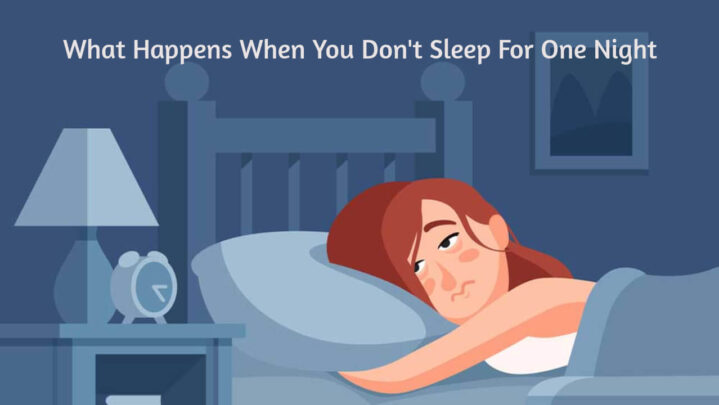A single night without sleep, commonly referred to as acute sleep deprivation, can have a variety of negative repercussions on your physical, mental, and emotional health. Lack of sleep can have serious repercussions because it is necessary for the body and the brain to operate properly.
Physically, not getting enough sleep can result in a faster heartbeat, higher blood pressure, and more cortisol, a stress hormone being produced. Additionally, a compromised immune system might make you more prone to sickness. Finally, disrupting your body’s capacity to control insulin and glucose might raise your risk of developing diabetes.
Sleep deprivation can affect your capacity to focus, solve problems, and make decisions cognitively. Additionally, your response time may slow down as you age, hurting your coordination and raising the possibility of accidents or injury. Finally, inadequate memory consolidation can make it difficult to create new memories or retrieve old ones, both essential for learning and remembering information.
Mood changes, irritability, increased stress, anxiety, and depressive symptoms are all emotional effects of sleep deprivation. As a result, you could have trouble controlling your emotions, making you more sensitive to emotional triggers and less resilient. In addition, an increased risk of mental health diseases is also associated with sleep deprivation.
It’s vital to remember that the effects of one night of sleep deprivation might vary based on individual characteristics such as age, general health, and sleep quality before the restless night. However, sleeping too little, even for only one night, can negatively influence your physical health, cognitive performance, emotional well-being, and social relationships. Therefore, for general health and well-being, it is essential to prioritize frequent, high-quality sleep.





